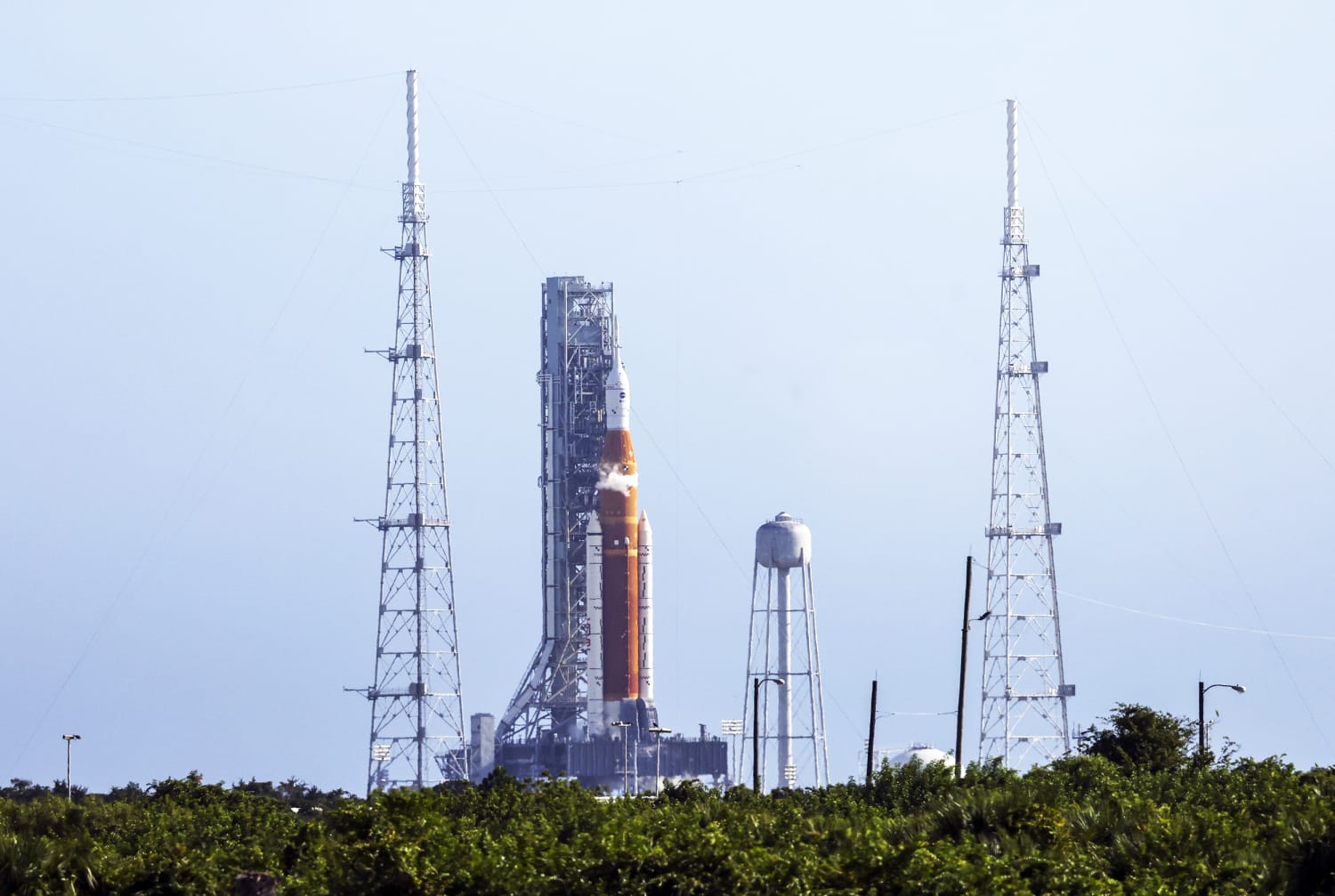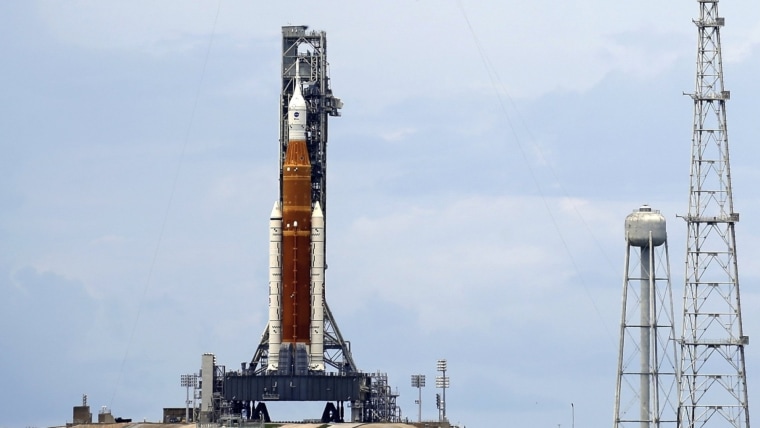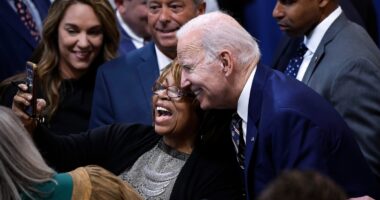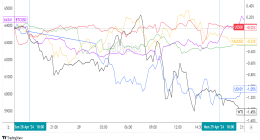From Earth, the moon looks luminescent and unblemished. But on the lunar surface there are many things that humans have left behind. Some 84 rockets and rovers and landers — over 200 tons of them. Totems from those who have walked on it: a small armless aluminum statue of an astronaut, a family photo, a falcon feather and a hammer, golf balls, a Bible. The buried ashes of an astrogeologist. And 96 bags of human waste.
Visiting the moon — yes, again — could fuel us to continue the tasks we have to confront on Earth.
Unseen is all the optimism that fueled Apollo 11, the first mission that put humans on the moon. It lies dormant under the surface, and NASA hopes to revive it with another manned trip to the moon — one named for the twin sister of Apollo — that will put the first woman and the first person of color there in 2025. Artemis will test out a new launch system and spacecraft. It was scheduled to take off on Saturday and delayed for the second time for fuel-related hiccups, but expected to launch soon. It will be the first in a series of spaceflights whose ultimate goal is to establish a base camp on the moon as a step to sending astronauts to Mars.
In a statement on the mission’s website, after “scientific discovery” and “economic benefits,” NASA lists Artemis’ goal to serve as “inspiration for a new generation of explorers: the Artemis Generation.” Cultivating excitement from that or any other generation might be the biggest challenge the mission faces.
Amid numerous crises on Earth, going to the moon can be viewed as frivolous at best. NASA’s own inspector general, Paul Martin, thinks that the mission has “a price tag that strikes us as unsustainable.” In a 2019 Pew Research study on the 50th anniversary of the first moon landing, only 13% of Americans said that returning to the moon should be a top priority for NASA. In the words of Barack Obama, one of the most optimistic orators we’ve had as president of the United States, “We’ve been there before.”
Those surveyed reasonably prioritized using NASA resources for monitoring the Earth’s climate, looking out for asteroids that could crash into our planet and developing new technologies. When asked if they could picture themselves one day taking advantage of space tourism, 58% said they couldn’t, some citing the expense. And indeed space, despite its infiniteness, seems to now hold possibilities only for the rich.
Yet these are all also arguments for going.
Despite the $369 billion in climate and clean energy investments that Congress just authorized along with enhancements to the Clean Air Act, it is possible we’re only forestalling the end of a habitable planet, particularly when global cooperation on climate change still eludes us. The last stage of the three-part plan for Artemis is to set up a moon base, possibly by 2034, that will serve as a test run for sending humans to Mars. It’s a practical plan that’s more than the musings of a flighty billionaire.
As for the considerable cost, in speaking to the House Space and Aeronautics Subcommittee, NASA’s Martin did not say he was opposed to the mission, though he did have criticisms regarding expenses. He recommended a move away from the current contracts that allow contractors to increase prices as they go, but instead put in place fixed-price contracts that would encourage competition among contractors who would have to deliver their work for a capped amount. This model could also keep costs down for other work NASA contracts.
The costs are also considerable on the individual level. The Americans who answered the Pew Research study were not wrong that space tourism is likely out of their reach. Virgin Galactic is currently taking deposits of $150,000 for its $450,000 tickets for 90 minutes of spaceflight tourism in 2023.
But that makes the public investment by NASA that much more important. Instead of gatekeeping new technologies within private companies, NASA has a mandate to share its discoveries. And while extremely competitive, NASA’s Astronaut Selection Program is a more equitable, attainable choice than purchasing an outrageously priced ticket.
“Explorers wanted” is how NASA framed its pitch to potential Artemis Generation astronauts, a far more romantic-sounding prospect than “bitcoin accepted.” The phrase conjures memories of our first era of space travel — and the idealism and optimism it spread.
It’s hard to imagine in these days of niche and fractured experiences, in which almost everything available to watch is consumed solitarily on a six-inch screen, but in 1969 millions of people gathered around TV sets and projectors across the country to watch the broadcast of the first moonwalk.
Along with interplanetary exploration, other things that seemed possible by 1969 were civil rights and women’s rights. Yet in recent years, the progress in those movement’s goals has been painfully impeded. The promise the world holds is diminishing to the point where we feel like we can no longer see that far outside ourselves, let alone beyond the oppressive atmosphere.
Watching humans, particularly those who have borne the brunt of these last few difficult years, step down from a publicly funded spacecraft onto a place outside Earth could bolster our hopes for something beyond our terrestrial concerns. Visiting the moon — yes, again — could fuel us to continue the tasks we have to confront on Earth.
In the poem “1969,” Alex Dimitrov in 2018 memorialized the potential the world contained when the first moonwalk took place. He ends his work with the engraving on the plaque that the Apollo 11 astronauts placed on the moon, plus a last sentence of his own: “HERE MEN FROM THE PLANET EARTH FIRST SET FOOT UPON THE MOON JULY 1969, A.D. WE CAME IN PEACE FOR ALL MANKIND. Then returned to continue the war.”
Source: | This article originally belongs to Nbcnews.com










